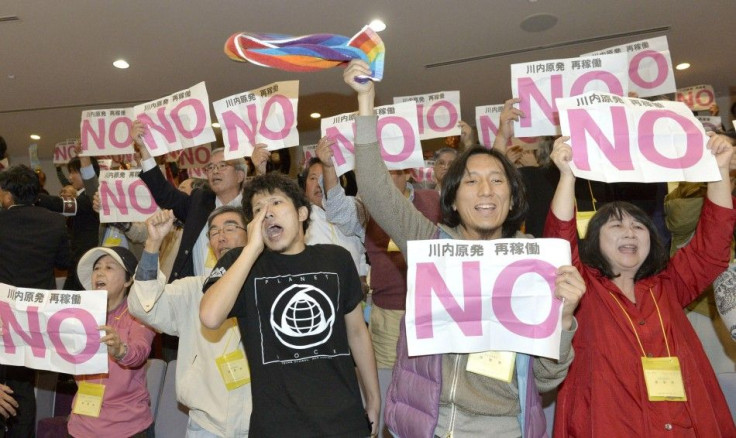Japan Set To Restart Nuclear Reactor In Early 2015

Japan's all set to restart one nuclear power plant in 2015 having passed all the necessary requirements for its safe operations. The plant is the Sendai Nuclear Power Station located in southern Japan.
Members of Kagoshima's prefectural assembly approved the restart of its two reactors despite the concerns of residents about several active volcanoes around the plant. A total of 38 out of 47 voted for the restart. Kagoshima governor Yuichiro Ito backed the decision.
Albeit reluctant in extending his full support to the restart program, Ito said in a news conference hours after the prefectural assembly that Japan still has no recourse but to "rely on nuclear energy, and it is extremely important for us to steadily carry out the plan." Japan's Nuclear Regulation Authority had initially inspected the Sendai reactors under stricter safety requirements culled from the lessons of the Fukushima meltdowns. Both received passing grades in July.
But they still have to undergo on-site checks, thus the online restart was better scheduled early in 2015. The site still has to do some remedial work which the NRA has to approve first, along with some technical procedures. The two reactors are specifically positioned 600 miles southwest of Tokyo on Kyushu Island.
But Japan Times reported the towns and villages located right within the 30 kilometre radius of the plant remain cold to the idea of restarting the nuclear power plant. They have demanded that they should also be consulted both by the central government and Kyushu Electric Power Company, Sendai plant operator, since they are the ones to be immediately affected once something bad happens in the future to the facility.
All of Japan's reactors have been offline for three years now since the Fukushima tragedy occurred. Prime Minister Shinzo Abe had ordered the immediate shutdowns following citizens' backlash. Japan has almost 50 reactors at the time. Sendai would be the first to restart under the new safety rules.
But it was also the prime minister who had consistently called for the resumption of the operations of the power plants. He had long said that prolonged shutdown will continue to hurt Japan's economy, which heavily relies on imported sources of energy.





















